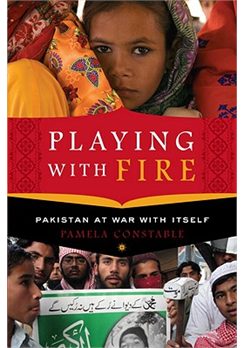 Washington, DC—On October 19, 2011, journalist Pamela Constable discussed her new book, Playing with Fire: Pakistan at War with Itself, at a WFPG Author Series event. After 13 years of covering Pakistan for The Washington Post, Constable chronicled her observations on a country that has struggled with democracy since its creation. Pakistans potential, she claimed, is mired in a corrupt political system controlled by a feudal-minded elite. The confluence of religious zeal, lack of education and opportunity have not only stalled Pakistans progress but made it resistant to improvement.
Washington, DC—On October 19, 2011, journalist Pamela Constable discussed her new book, Playing with Fire: Pakistan at War with Itself, at a WFPG Author Series event. After 13 years of covering Pakistan for The Washington Post, Constable chronicled her observations on a country that has struggled with democracy since its creation. Pakistans potential, she claimed, is mired in a corrupt political system controlled by a feudal-minded elite. The confluence of religious zeal, lack of education and opportunity have not only stalled Pakistans progress but made it resistant to improvement.
Constables assessment of the current situation was grim. Many Pakistanis live well below the poverty level and have limited access to education. This is especially true for girls. Pakistanis feel powerless against overwhelming government corruption which prevents upward social mobility. Under these circumstances, they are vulnerable to manipulation by political leaders and extremist groups. Subsequently, many Pakistanis were initially welcoming to the Taliban, who promised justice in a corrupt political and social system. According to Constable, the majority of terrorist attacks in Pakistan are blamed on India, the United States, and Israel. In fact, many citizens see the US second only to India as a major enemy of the State. Constable pointed out that the news of Osama bin Ladens death was met with ambivalence but Pakistanis were outraged that the US had invaded their country. Overall, Pakistanis are unwilling to believe that fellow Muslims would commit acts of terrorism. The military, the strongest and most influential power in Pakistan, attempts to keep terrorists in check. For this reason, Pakistan has frequently been placed under military rule, enforcing safety but removing the country farther from democracy.
The country was founded as an experiment in Muslim democracy in 1947. However, since the death of its revered creator, Mohammad Ali Jinnah, democratic values have clashed with Islamic law. Constable cited Pakistans blasphemy laws as an example of the harsh enforcement practiced. A person can be executed for blaspheming with no further proof than the word of a witness. Many emerging democratic leaders who speak out against this barbaric practice are assassinated; their murderers act with impunity and are even upheld by the community as defenders of Islam.
However, despite Pakistans myriad challenges, Constable saw several sources of its potential. Pakistan is a leading producer of textiles and could experience an economic boost if high foreign tariffs are augmented. And though education is inaccessible for many, there are a number of highly educated Pakistanis that, if jobs became available, could impede the brain drain drawing Pakistans intelligentsia to places like the United States, the United Kingdom, and Europe. Most importantly, Constable stressed the need for a strong central leader who is supported by the military. If Pakistan can unite and fulfill its original purpose of being a peaceful, Muslim democratic state, it can extinguish the fire and move forward.
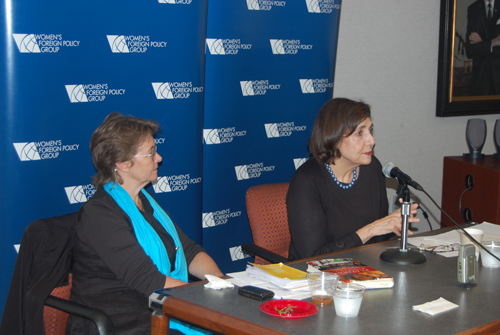 |
 |
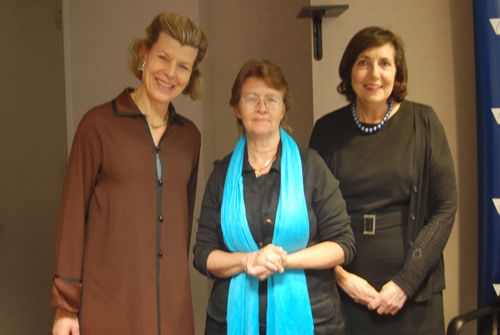 |
Patricia Ellis introducing Pam Constable
|
|
Author Pam Constable with WFPG Board Member
Diana Negroponte and WFPG President Patricia Ellis
|
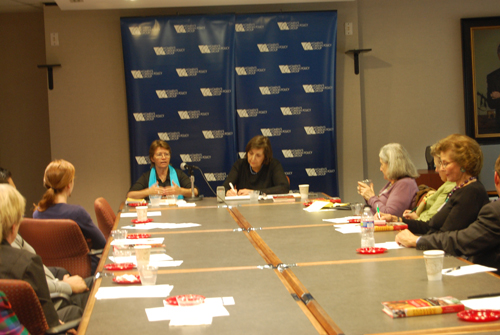 |
 |
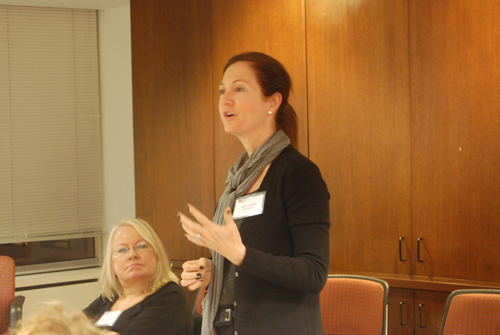 |
| |
|
|
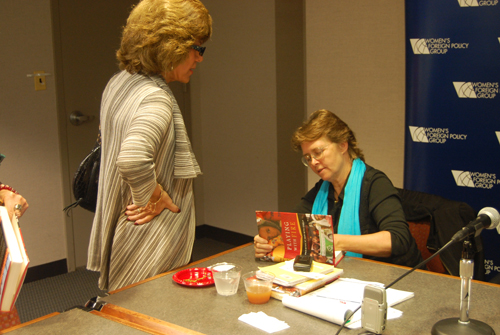 |
 |
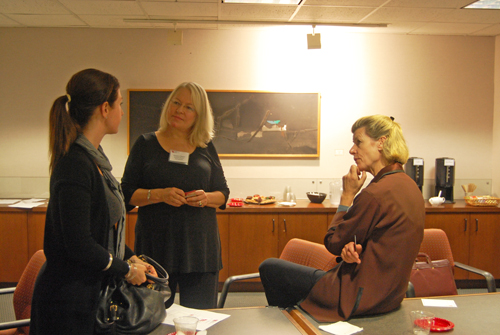 |
| |
|
|